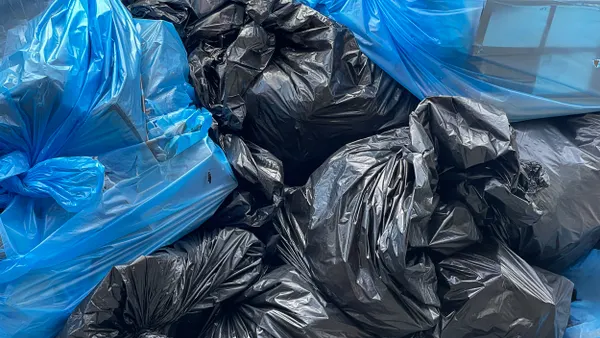Looking to talk more trash? Check out all of the episodes or follow us on iTunes!
As more cities set high diversion rate targets that can be challenging to achieve, some industry leaders view mixed waste processing as a clear solution. Rather than trying to change behavior around sorting recyclables and diverting organics, they believe a one-bin approach is the easiest way to go for all involved. It could increase the capture rate for all streams, particularly commercial, and any contamination would be outweighed by those higher volumes. Whatever material couldn't go to a viable end market could be converted into various forms of energy and more jobs could be created in the process.
Multiple facilities already have some form of mixed waste processing, but more often the recent high-profile examples of failed facilities get raised instead. Closure of a Montgomery facility left many municipalities in the region without recycling options for months. Last year, Covanta's plans for an Indianapolis facility were halted by legal action. After a protracted negotiation process, Houston canceled its own mixed waste plans for a complex set of reasons.
Aside from the technical factors involved, a number of industry professionals remain opposed to the idea on principle. They believe that the act of sorting is an important element of recycling education and having the ability to toss everything in one bin won't help achieve the level of refuse reduction envisioned in a "zero waste" future. The relative lack of full-scale examples also makes many question the concept's practicality.
To break this all down, Waste Dive caught up with two people on very different ends of the sorting spectrum. Rob Watson, founder of the LEED and SWEEP standards, extolled the virtues of mixed waste processing using more advanced technology. He is the chief science officer for a company called EcoHub — which bid on the canceled Houston contract — that is proposing a system far more complex than many others currently operating but doesn't yet have one in operation. Kate Bailey, director of Colorado-based Eco-Cycle Solutions, spoke in favor of source separation and described Eco-Cycle's drop-off facility that currently accepts 23 materials and counting.
Sit back, relax and crank up the volume. This is Talkin' Trash with Waste Dive.












